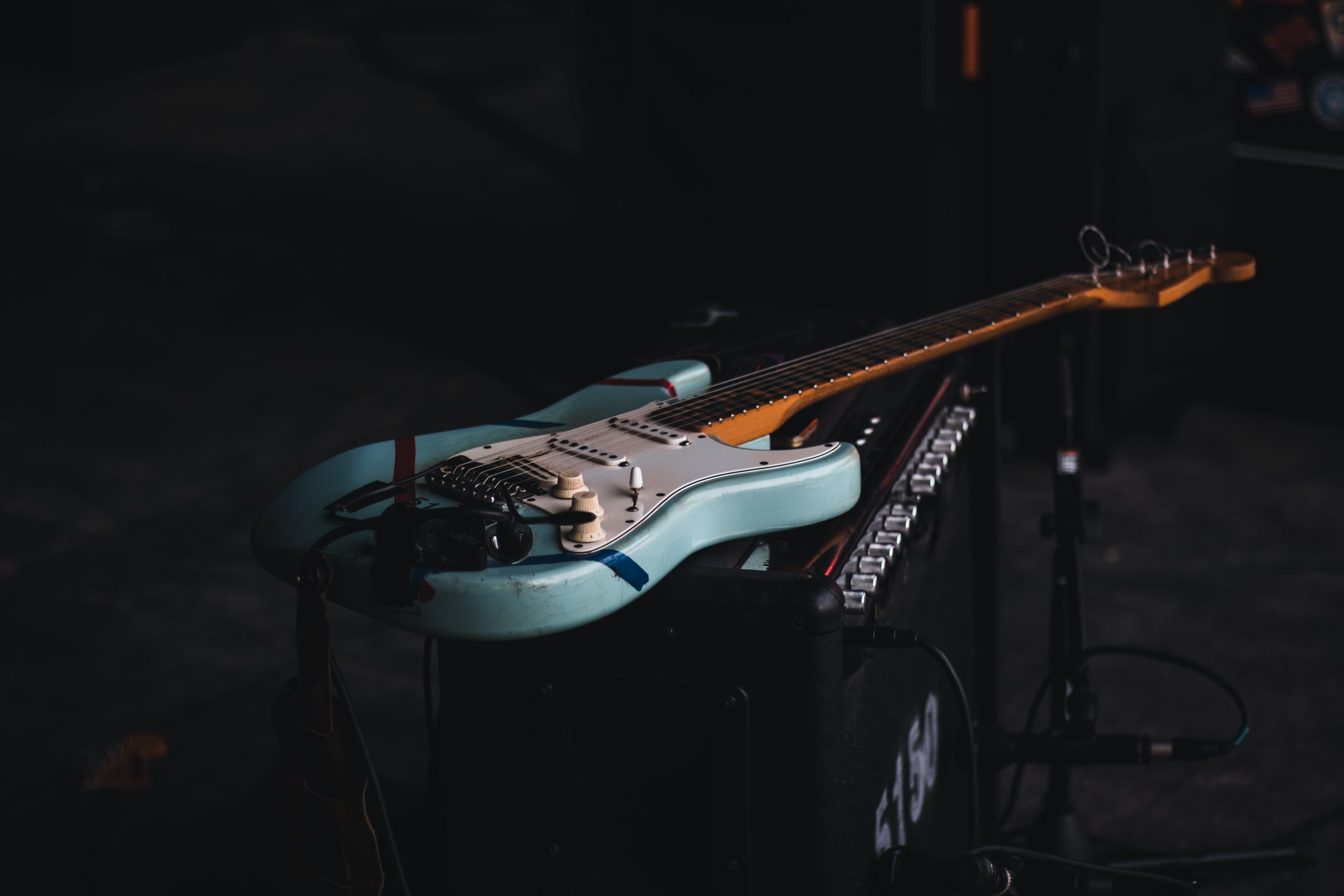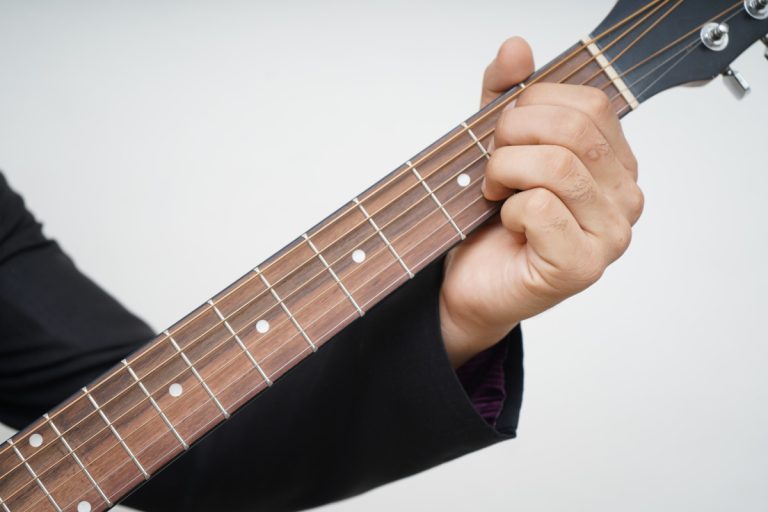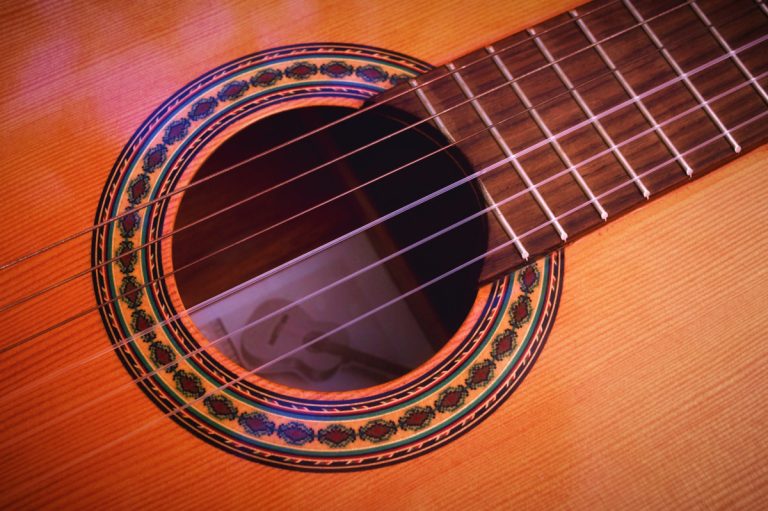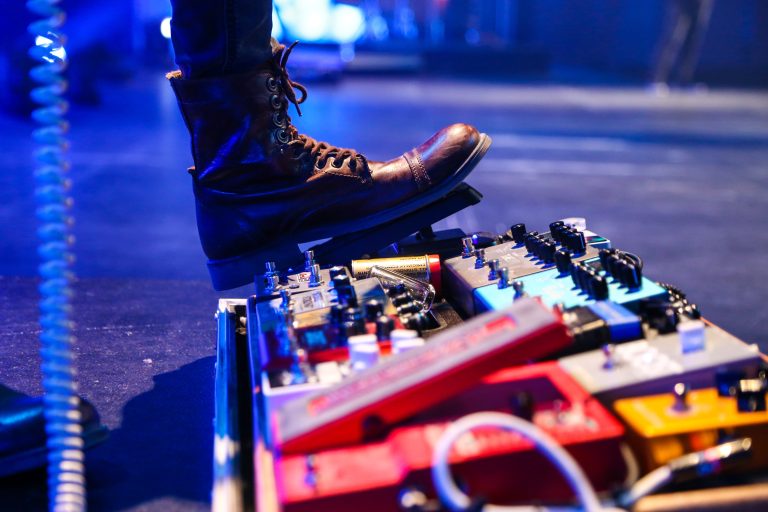Are you looking to add the sweet sound of an electric guitar to your musical repertoire? It’s a great choice for any aspiring musician! But before you pick up your dream instrument, it’s essential to understand how much guitars cost to make informed decisions about what is best for you and your budget.
This comprehensive guide will help you understand the different factors determining the cost of electric guitars and provide insights into what type of guitar is best for your needs.
History of Electric Guitars
The history of electric guitars stretches back to the early 1900s when guitarist George Beauchamp developed a pickup system that allowed acoustic guitars to be amplified. His invention paved the way for the first commercial electric guitar – the Rickenbacker “Frying Pan,” released in 1931. The instrument proved popular with jazz musicians, and other models soon followed.
In 1935, the National String Instrument Corporation released its first electro-acoustic instrument – the Rickenbacker Model A-22 Electro Hawaiian. This semi-hollow body guitar was cast in aluminium, featuring a chrome nut and saddle. During the same period, Gibson released its ES-150 Electric Spanish guitar – one of the most advanced instruments of its kind at the time.
Electric guitars continued to evolve in the following decades and eventually became one of the most iconic instruments of rock ‘n’ roll. Over the years, musicians of all genres have embraced the electric guitar and its unique sound, making it a staple in modern music. Today, electric guitars come in various shapes, sizes, and styles – from Fender Stratocaster to Gibson Les Pauls – allowing players to find the perfect instrument for their needs.
Electric Guitar vs. Acoustic Guitar
Electric and acoustic guitars are two different instruments with many similarities but also have some key differences. Electric guitars rely on pickups to generate sound, while acoustic guitars use the vibrations created by their strings to amplify a natural sound. Electric guitars are more versatile in tone and volume, making them ideal for playing genres such as rock or metal. On the other hand, acoustic guitars are well-suited for folk and classical music due to their warm tone and unique resonance.
In terms of playability, electric guitars are easier for beginners because of their lighter strings and shorter scale length. Acoustic guitars require more skill as they have thicker strings and longer necks. Electric guitars also require an amplifier to play, while acoustic guitars do not.
Electric guitars are also typically more expensive than acoustic guitars. Electric guitars often have more advanced features and higher-quality components, such as pickups and amplifiers.
6 Factors Affecting the Cost of Electric Guitars
The cost of electric guitars varies depending on various factors, including the brand, materials used in construction, and features. Here are six key factors that affect the price of electric guitars:
1. Quality of Construction
The quality of construction is one of the most critical factors affecting electric guitars’ cost. The construction quality of a guitar determines its durability, playability, and overall sound quality. A well-constructed guitar will have better resonance, action, and sound projection.
On the other hand, a poorly constructed guitar will have various issues, such as fret buzz, poor tuning stability, and limited sound projection. As a result, guitars with higher-quality construction tend to be more expensive.
2. Type of Wood Used
The type of wood used in constructing an electric guitar can also affect its cost. Different types of wood have other properties, such as weight and tone. The type of wood used for a guitar’s body and neck can influence its sound quality, resonance, and overall playability.
For example, guitars made from mahogany or maple are generally considered to have a warmer and more full-bodied tone, making them more expensive than guitars made from alder or basswood. Additionally, some types of wood are rarer and more costly than others, such as rosewood.
3. Pickups and Electronics
The pickups and electronics used in an electric guitar determine its sound quality and playability. A well-made pickup will provide a clear, dynamic sound with many characters.
Pickups are the elements that translate vibrations from the strings to create sound, and they come in a range of options, such as single coils, humbuckers, and piezo pickups. Different types of pickups have other sound characteristics, so the kind of pickup selected can affect the cost of a guitar.
The electronics on a guitar – such as knobs, switches, and preamps can also influence its cost. Electronics are essential for fine-tuning a guitar’s tone and controlling signal processing, so guitars with more sophisticated electronics are more expensive.
Less expensive pickups and electronics may lack the nuances of higher-end components, resulting in a less refined sound overall. Additionally, electronics that are easier to customize and adjust can also increase the cost of the instrument.
4. Availability and Demand
Limited edition guitars are often more expensive than standard models because they are produced in lower quantities and therefore have higher demand. Similarly, vintage guitars also tend to be more costly due to their rarity and the nostalgia associated with them.
Additionally, the popularity of a guitar can also influence its cost. Popular electric guitars have higher demand and, therefore, higher costs. For example, classic models such as Fender guitars and Gibson Les Paul often carry high price tags due to their legendary status and popularity among professional musicians.
5. Brand Name
The brand name can also influence the reputation of a guitar and its appeal to potential buyers. A recognizable brand name can add value to a guitar, making it more desirable and expensive. For example, guitars made by iconic brands such as Fender, Gibson, Ibanez, Suhr, Epiphone, and Squier tend to have higher prices due to the brand’s reputation and quality craftsmanship.
Some brands are associated with specific genres of music or types of players. As a result, these brands tend to be more popular among certain types of musicians, which can lead to higher prices. For example, Ibanez is primarily associated with the hard rock and metal genres, so their guitars tend to be more expensive among rock and metal players.
6. Style of Guitar
Finally, the style of the guitar also plays a role in its cost. Certain designs or styles, such as double-cutaway Les Pauls or Stratocasters, have become iconic and are in high demand. This higher demand may translate into higher prices.
Complex designs and ornamentation can also increase the cost of electric guitars, with manufacturers often charging a premium for custom inlays, finishes, or body shapes.
The Price Range of Electric Guitars
The price range of electric guitars can vary significantly depending on the factors mentioned above. At the most basic level, entry-level models start from around $100 and can go up to about $400. Mid-level guitars generally range in price from $400 to about $1000, depending on the type of construction, pickups, and electronics. Professional models can cost significantly more than mid-range options, with some high-end models costing upwards of $3000.
For the budget-conscious guitarist, various second-hand and used guitars are available on the market, which can offer good value for money. Used guitar prices vary significantly, depending on the instrument’s condition, so it pays to research before buying. The same goes for a cheap guitar, which can be of decent quality if you know where to look.
Some manufacturers also offer entry-level electric guitars at lower prices to appeal to beginners and younger players. These models come with simpler features and are often made from cheaper materials, but they can still be an excellent option for those looking to start on their guitar journey.
Electric Guitars for Beginners
For beginner guitarists, there is a range of electric guitars available. It is essential to choose a guitar that is suitable for your playing style and budget. Popular electric guitar models are discussed in detail below.
3/4 LA Electric Guitar by Gear4music, Sunburst
Get your groove on with this 3/4 LA Electric Guitar
Perfect For: Beginner
Features: 22 frets, maple neck and oiled popler fretboard for smooth playing
Other Info: Includes gigbag, jack cable, strap, plectrums and Allen keys
Pros:
- Good value electric guitar
- Easy to handle 3/4 size body
- Smooth neck and fretboard
- Classic tone from single-coil pickups
- Versatile sound with the 5-way selector switch
Cons:
- Not suitable for advanced players looking for more complex tones
- Unbalanced weight distribution, which can be tricky to play standing up
- Tuning issues due to dive-bombing
The TedScore: 8.7/10
Epiphone Les Paul Express, Ebony
Discover Big Tone in a Small Package
Perfect For: Beginner
Features: Okoume neck and Pau Ferro fingerboard
Other Info: Epiphone 700T humbucker and 650R humbucker pickups
Pros:
- Fantastic value for the money
- Great playability and tone
- High-quality components throughout the guitar
- Lightweight and easy to manoeuvre
- Fully adjustable bridge for easy intonation tweaking
Cons:
- More frequent tuning adjustments are needed.
- Requires regular maintenance due to the bolt-on neck design
- 22″ scale length gives less tension on the strings
The TedScore: 8.5/10
Squier Bullet Mustang HH, Imperial Blue
A Classic Mustang design for the modern player
Perfect For: Beginner
Features: Solid Basswood body and C-shaped neck for effortless fretting, riffing and soloing
Other Info: Scale Length: 24″
Pros:
- Vintage Fender aesthetic
- Excellent playability for students and professionals alike
- Lightweight and comfortable body design
- Great intonation and tuning stability
Cons:
- Electronics may not be up to modern standards
- The size may be too small for some players
The TedScore: 9/10
High-End Electric Guitars
For the more experienced guitarist, there are several high-end electric guitars available. These models feature top-tier components and superior craftsmanship for the best playing experience.
Rosewood fit for a Rock Legend
Perfect For: Advance
Features: Custom Wound Music Man Pickups
Other Info: Schaller M6-IND Locking Tuners
Pros:
- Responsive and Powerful Output
- Crisp Highs with a Smooth Low End
- Bolt-on Neck Construction Offers Fast Action and Playability
- White Pearl Block Inlays are Eye-catching and Stylish
Cons:
- Expensive Compared to Other Models in the Line-up.
The TedScore: 9/10
Supreme semi-hollow sound and classic style
Perfect For: Intermediate to advanced guitar players
Features: Material: 3-ply Maple/Poplar/Maple body
Other Info: HH pickup configuration with Calibrated T-Type Lead and Rhythm pickups
Pros:
- Incredible playability and access to upper frets for unrestricted expression
- Luxurious mahogany neck enhanced by a rosewood fretboard
- Semi-hollow construction for weightless playing
- Thermally engineered body and bracing for great tone
- Classic sixties cherry finish
- Graph Tech string nut for excellent tuning stability
Cons:
- No tremolo
- No push knob or extra switch option
The TedScore: 9/10
PRS Custom 24 Wood Library, 10 Top Trampas Green Fade
Radiate Onstage with the Custom 24
Perfect For: Experienced
Features: 24 Frets with Black Corian Outline Birds Inlays
Other Info: 58/15LT Pickups with 5-way Blade Switch
Pros:
- Powerful and Dynamic Sound with Incredible Bite, Definition & Pronounced Midrange
- Volume and Tone Control allow you to Sculpt your Tone until it is Distinctive
- Swift Response and Smooth Playability with its Curved Neck Profile
- Classic looks & Design, Fits any Style
- Includes Black Paisley Case for Ultimate Protection
Cons:
- Price is on the Higher Side of the Market
- Highly Delicate Finish – Careful Handling is Required
The TedScore: 9/10
Custom Electric Guitars
Custom electric guitars offer the perfect solution for those looking for something unique and special. A custom guitar can be tailored to your exact specifications and preferences, so you know you’ll have an instrument that is truly yours. Prices vary widely depending on the parts used and the level of craftsmanship and customization, but no matter the final cost, you can rest assured knowing that your custom electric guitar will be one of a kind.
PRS Custom 24 Wood Library, 10 Top Red/Grey Black Fade
PRS’s wonderous wood-crafted masterpiece
Perfect For: Advance Player
Features: Two PRS 85/15 Bass and Treble pickups
Other Info: PRS Phase III Open Back tuners
Pros:
- Rich, vibrant tone resonates from this wood masterpiece
- Sleek, smooth neck and fretboard for effortless playing
- A truly majestic resonance and sustain to bring out the best in your licks
- Ultra stable tuning with world-class PRS Gen III Tremolo Bridge
- Professional hard case included for protection
Cons:
- Not for beginners, as the sound and playability may be too advanced
- May take a while to get used to the neck shape and pattern
The TedScore: 9/10
Vintage Electric Guitars
The ultimate in vintage style and playability, vintage electric guitars are perfect for those who desire a classic look and feel. These instruments feature aged wood finishes and components that recall the golden age of rock ‘n’ roll. With various designs, body shapes, and pickups, vintage electrics provide a unique sonic palette that can be used to create your signature sound.
PRS Private Stock, Chesapeake Bay Bridge
Premium Private Stock vault of tone
Perfect For: Advance Player
Features: 58/15 LT TCI humbucker pickups in bridge and neck positions
Other Info: Phase III set screw locking tuners
Pros:
- Incredible playability from the Pattern Thin neck
- Bright and articulate tones
- Dedicated push/pull volume and tone controls for single coil sounds
- Luxurious aesthetic from the African ribbon mahogany body, curly maple top and exotic fretboard woods
Cons:
- None
The TedScore: 9/10
The Best Brands of Electric Guitars
The market for electric guitars is ever-evolving, but the best brands remain fairly consistent. Some top choices are Ibanez, Jackson, Yamaha, Squier, and Epiphone. Each of these brands has something unique to offer in terms of style, sound and craftsmanship; they all have a rich history that can be seen and heard through their guitars.
From heavy metal to blues, rock or jazz, whatever your style, one of these brands likely has something that will suit you.
Ibanez
Ibanez is a brand that has been synonymous with quality electric guitars for many years. The company’s innovative guitar design and manufacturing approach has set it apart from the competition. Ibanez is known for its precision engineering, attention to detail, and high-quality materials.
One thing that sets Ibanez apart is its use of exotic woods in its guitar bodies. The company is fearless in experimenting with different materials to find the perfect combination for each guitar. Ibanez guitars are also known for their fast and comfortable necks, which make them a favourite among shredders and metal guitarists.
Ibanez JIVAJR Nita Strauss, Deep Sea Blonde
The Siren of Shred – Unleash the Power of Rock
Perfect For: Intermediate to Advance
Features: Legendary Wizard III neck design
Other Info: Armed with two heavy-duty Quantum humbuckers
Pros:
- Signature model designed by Nita Strauss offers incredible playability and tone
- A massive range of sounds is available
- Tremolo allows freedom to create unique vibrato effects
- High-quality construction and materials used throughout
Cons:
- Some users may prefer the tone of single-coil pickups over humbuckers.
- The high action may be uncomfortable for some players.
The TedScore: 9/10
Jackson
When it comes to metal guitarists, nothing beats the sound of Jackson. From its hard-hitting pickups to its classic body shapes, Jackson is an iconic brand setting the standard for metal guitars since the late 70s. With its combination of looks and sound, Jackson is a favorite among many professional guitarists. With such classic models as the Dinky and Soloist, you can find something that fits your style.
Jackson RRT Rhoads MJ Series, Black
Experience performance and absolute tone with the Jackson RRT
Perfect For: Intermediate to Advanced Players
Features: TOM bridge, Gotoh locking tuners & Graph Tech TUSQ nut for reliable tuning and precise intonation control
Other Info: Two Seymour Duncan pickups
Pros:
- Durable neck designed to withstand heavy playing
- Rich and versatile tone with warm vintage qualities
- High output with great sustain
- Fast, smooth finish on the fretboard
- Rock solid hardware for reliable performance
Cons:
- More expensive than other similar models
- Some players may find the volume knob too close to the picking area
The TedScore: 9/10
Squier
Squier is your go-to brand if you’re looking for the classic Fender sound at an affordable price. From its vintage style Telecasters and Stratocasters to its modern take on classics like the Jagmaster and Jazzmaster, Squier offers quality guitars at a budget-friendly price. Squier guitars are perfect for beginner and intermediate players, as they provide an easy-to-play platform that will help you improve your skills.
Squier 40th Anniversary Telecaster Gold Edition, Black
Celebrate the Iconic Telecaster
Perfect For: Beginner to Intermediate
Features: Gauges: .009 – .042
Other Info: Scale Length: 648mm
Pros:
- Stunning gold hardware looks great and adds to the overall tone.
- Easy playability with a comfortable neck profile for any style of playing.
- An affordable instrument with a vintage feel and aesthetic.
Cons:
- The gold finish may be too flashy for some players.
- The pickups have a bit less bite than more expensive models.
The TedScore: 8/10
Yamaha
Yamaha has a long history of producing quality guitars and basses at an affordable prices. From the iconic SG series to its range of acoustic guitars, Yamaha has something for every musician. Its versatile pickups provide a wide range of tones that can be used for any style of music, and its comfortable necks make it easy to play.
The Versatile Electric Guitar for Starters
Perfect For: Beginner
Features: Alnico V magnets for balanced tones and humbucker force
Other Info: Coil tap feature for single coil twang
Pros:
- Quality construction with durable materials
- Powerful humbucking tones
- Versatile tone generation
- Stage-ready at an affordable cost
Cons:
- Not ideal for musicians who need a neck-through build or top-brand pickups
- Might be too light for some players
The TedScore: 8/10
Epiphone
Epiphone is the preferred choice of many professional guitarists, with its range of classic electric guitars and unique designs. From Les Paul to the casino, Epiphone has a guitar for every player. Its humbucker pickups provide a great range of tones, and its classic design will give your setup a timeless style.
Epiphone Riviera, Sparkling Burgundy
A marvellous maple body and earth-shaking tone
Perfect For: Beginner to Intermediate
Features: PRO Mini Humbuckers at the neck and bridge positions
Other Info: Frets: Medium Jumbo
Pros:
- Stunningly unique tone, especially when paired with overdrive
- LockTone bridge for excellent sustain and enhanced sound
- Indian laurel fretboard for smooth playability
- Extremely robust hardware and construction to withstand years of playing
Cons:
- Not suitable for advanced shredding techniques
The TedScore: 9/10
Summary – How Much Does An Electric Guitar Cost
The perfect electric guitar for you is out there, and the answer to the question ‘How much does an electric guitar cost?’ really comes down to which features are important to you.
Whether it be a vintage-style Fender from Squier, a high-output Yamaha Pacifica or an Epiphone Riviera with its unique tone and classic design, there’s a guitar that’ll fit your budget and playing style.
So, take your time and find the perfect electric guitar for you. Your sound is worth it! What do you think? Did you find the ideal electric guitar for yourself? Share your thoughts in the comments below!
FAQ’s
How much should a beginner electric guitar be?
For beginner electric guitars, you should budget to spend at least $500. This will cover the cost of the electric guitar itself, as well as necessary gear such as an amplifier, protective case or bag, and other accessories like guitar picks, straps, tuners and extra strings. Bundles with entry-level guitars often offer good value for money and can provide an affordable way to get started.
Can I buy electric guitar as a beginner?
Absolutely. A new electric guitar can be a great option for beginners looking to learn how to play. Electric guitars tend to have slimmer necks that are easier on the fingers and strings that don’t require as much force when pressed down. Additionally, playing an electric guitar provides access to various sounds and tones that might not be achievable with an acoustic guitar. However, it’s vital to ensure you buy the right electric guitar for your skill level and budget.
Is a $100 electric guitar worth it?
In general, the answer is no. Electric guitars in this price range have inferior components and craftsmanship, making learning more challenging. Investing more money into an electric guitar can get you a better instrument with better sound quality. While a $100 electric guitar may seem like an attractive option for a beginner, the truth is that it won’t last long and can frustrate someone learning how to play. If you truly want your child to get the most out of playing the guitar, investing in a higher-quality instrument is worth it.
How much is a decent electric guitar setup?
A good electric guitar setup can cost anywhere from around $75 to $150, depending on the complexity of the repairs or adjustments needed. This is a relatively small investment compared to the purchase price of an instrument and will help ensure that your guitar plays and sounds its best.
Do Electric Guitars Cost More Than Acoustic?
The cost of an electric guitar is typically more expensive than its acoustic counterpart, but the extra money can often be worth it. Electric guitars have more complex circuitry and pickups, making them sound different from their acoustic counterparts. Electric guitars are also easier to play for long hours due to their lighter strings and balanced weight.
Electric guitarists can access a much more comprehensive range of tones and sounds due to amplifiers and effects pedals. All these factors contribute to the higher cost of electric guitars, but they can make all the difference in creating your unique sound. While an acoustic guitar will be an excellent foundation for learning the basics of guitar playing, an electric guitar setup is essential for exploring more creative and dynamic styles.





